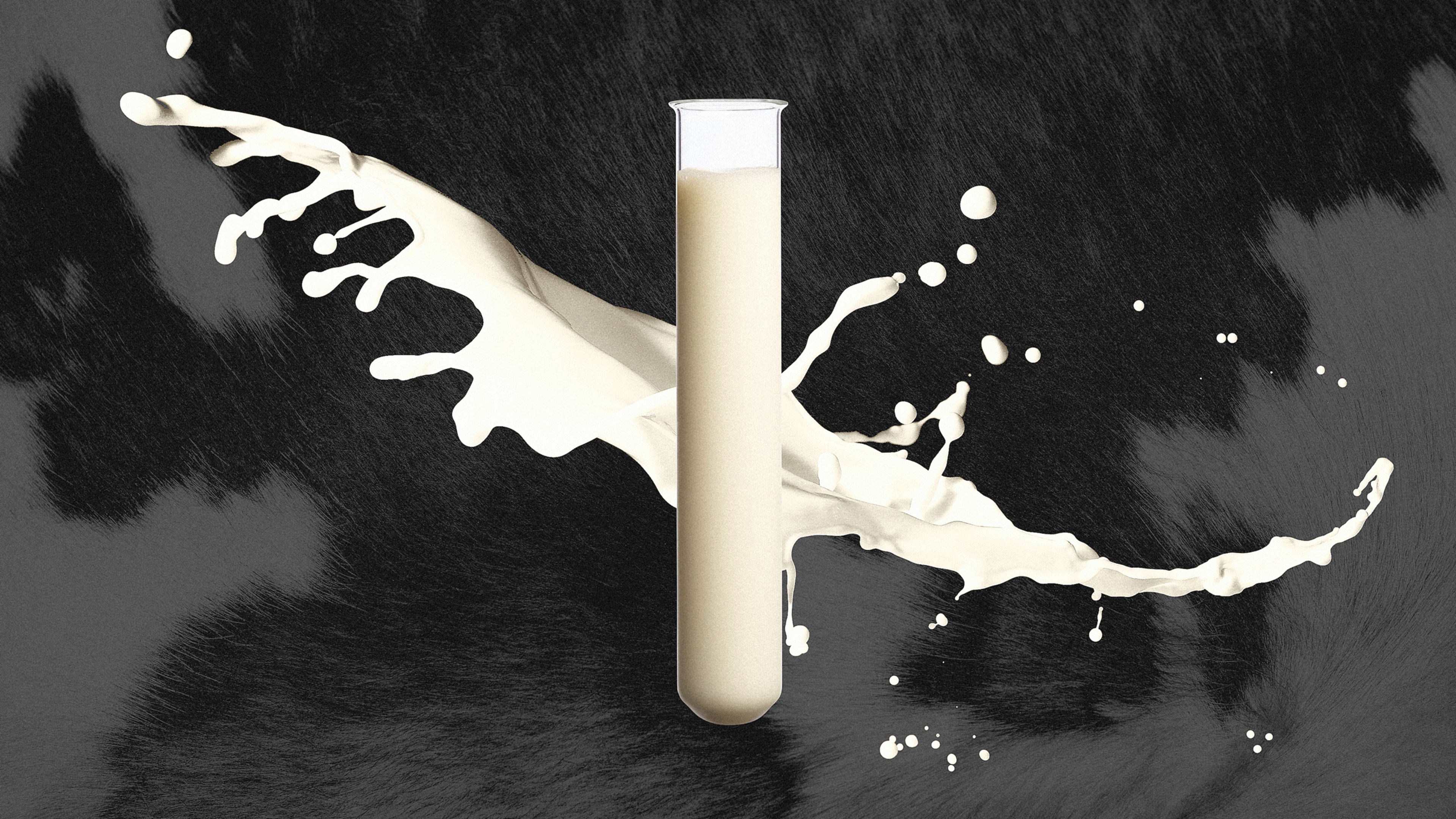In a lab in Boston, a startup has spent the last few months cultivating mammary cells from a cow—and recently succeeded in finding the perfect conditions to get those cells to produce real cow milk without an animal.
“We spend a lot of time trying to understand how the biology works in a cow, and then trying to do that,” says Sohail Gupta, CEO and cofounder of the startup, called Brown Foods, which makes a product that it calls UnReal Milk. The startup, which operates in India and the U.S., just completed a stint at the tech accelerator Y Combinator.

There are multiple reasons to move away from traditional dairy, including the fact that cows raised for milk and meat are responsible for around 30% of the world’s emissions of methane, a potent greenhouse gas. But Gupta thinks that it makes sense to stay as close to the natural process as possible. Mammary cells “have evolved naturally over centuries to produce milk in mammals,” he says. “So these cells have the entire genetic architecture to produce the fats, the carbs, the proteins.”
The company’s biochemical engineers have been studying how the cells behave, what they need nutritionally to survive, and what triggers lactation. “We’re trying to emulate nature and understand what kind of chemical signals are released in a mammal to trigger the cells to lactate and start secreting milk and get into the lactation phase,” he says. Now that they’ve shown that it can work at the small scale in the lab, they’re beginning to prepare for commercial production in larger bioreactors. The company believes that it can eventually reach price parity with conventional milk. In early calculations, it says that it could cut the greenhouse gas emissions from milk by 90%. (Unlike lab-grown meat, which requires an energy-intensive process of growing cells, producing milk just requires keeping cells alive, and has a far smaller footprint.)
The startup plans to make both milk and other dairy products like cheese and butter. The same process could be used to make other types of milk, from goat milk to human breast milk. Wilk, an Israel-based startup, is also using “cellular agriculture” to make both cow’s milk and breastmilk (Biomilq, based in the U.S., is making lab-grown breastmilk). Others may follow with additional dairy products. If the products can succeed—including the hurdle of convincing consumers to drink milk that came from a bioreactor—it’s possible that they could begin to replace traditional dairy farming. “I think it’s time to do better both for animals and the planet,” Gupta says. “And I feel eventually the food system should become, and will become, free from animals.”
Recognize your brand’s excellence by applying to this year’s Brands That Matter Awards before the early-rate deadline, May 3.
